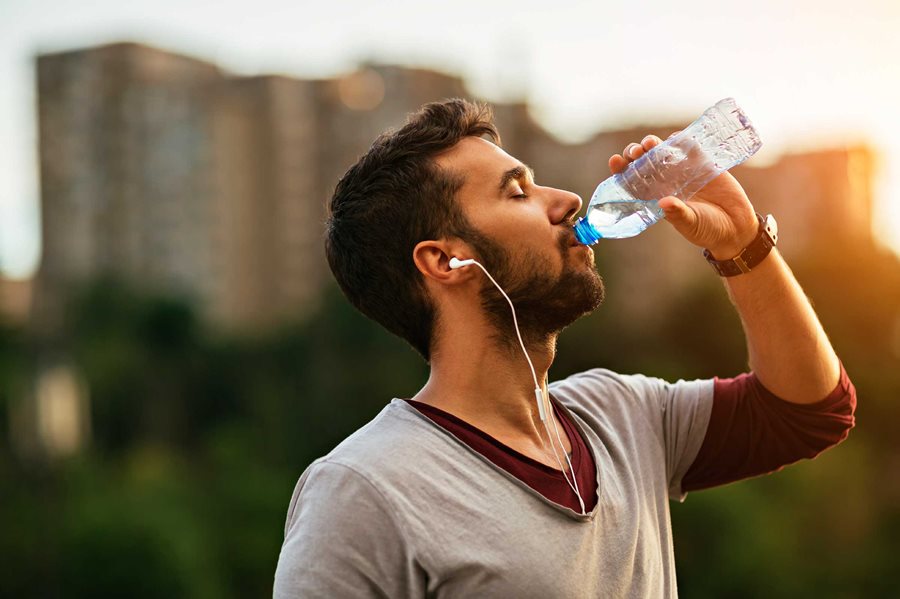Water is not only essential for maintaining good health, but for our survival. Without water, we could only survive, at best, a few days.1 We have developed an intricate network of physiological responses to ensure we maintain the levels of fluid intake we require. For instance, have you ever noticed that your feelings of thirst increase with the intake of salty foods such as pizza? This is because water is stored in either intracellular fluid (ICF) or extracellular fluid (ECF) compartments, and when any minerals or molecules become too concentrated in one compartment, water will be pulled from the other compartment to dilute itself. So when eating salt-heavy foods like pizza, sodium accumulates in the ECF, and draws water from the ICF. Sensors in one’s cells recognize this exchange, and sends signals to the brain to rehydrate the cells until the compartment is adequately diluted for homeostasis. However, in certain circumstances, the body’s homeostasis can become disrupted, causing dehydration.
However, mild to moderate levels of dehydration can generally be treated by replacing the lost salts and fluids through drinking water. This is why keeping our body’s well-hydrated is the most basic but one of the most important things we can do to ensure good health and promote good quality of life.
Dehydration gives rise to a range of adverse health effects, including but certainly not limited to headaches; dizziness or lightheadedness; elevated heartrate; sunken eyes; and dry, shriveled skin.2 As well as these immediate physiological symptoms, studies have also suggested that even being mildly dehydrated can hinder one’s performance when engaging in physical exercise, increasing one’s experience of fatigue, and perceived effort.3 Similarly, mild dehydration can also produce disruptions in mood and cognitive functioning.1 In persons particularly vulnerable to dehydration (i.e. children, young adults, and the elderly), being mildly dehydrated can impair concentration, alertness, and short-term memory.4 Moreover, adequate fluid intake is also important for the kidneys to flush and filter waste from the body, and regulate water balance and blood pressure.1 Since the human body is approximately 75% water, it is not surprising that dehydration inhibits our physiological and cognitive functioning and causes such feelings of depletion and debilitation.

The level of fluid intake one requires can vary depending on a range of different factors, including individual metabolism, and environmental conditions and activities. This is why there is no best fit model for how much water should be universally consumed. However, one indicator for how much water should be consumed is the body’s natural thirst response. A surefire way to consume enough fluids every day is to keep a ready supply of drinking water with you. Aside from immediate accessibility, improving the taste of water can also facilitate adequate consumption. A significant barrier in drinking tap water can be attributed to the unpleasant tastes and odours it’s often associated with. Filtering out chemicals such as chlorine, and heavy metals can vastly improve the taste of tap water. You may also be more inclined to drink greater amounts of water if you alter the flavour by adding in slices of alkalizing citrus fruits, such as lemon. Furthermore, eating foods with high water contents can also contribute to your fluid intake.
In order for your body to function properly, it is important to replenish lost fluids. When the body is adequately hydrated, you can digest foods easier, think clearer, and perform better. Keeping hydrated should be the first port of call for maintaining good health.
- http://www.ncbi.nlm.nih.gov/pmc/articles/PMC2908954/
- http://www.nlm.nih.gov/medlineplus/ency/article/000982.htm
- http://www.ncbi.nlm.nih.gov/pubmed/1447078
- http://www.ncbi.nlm.nih.gov/pubmed/11812391